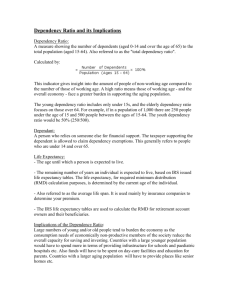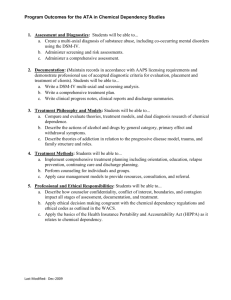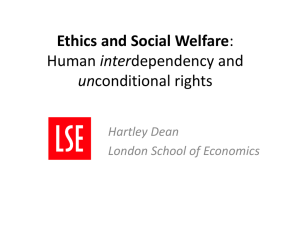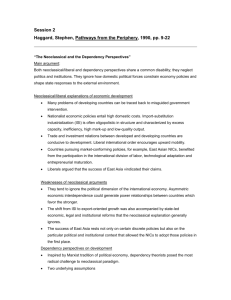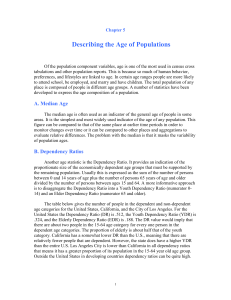Committee: Economic & Financial
advertisement
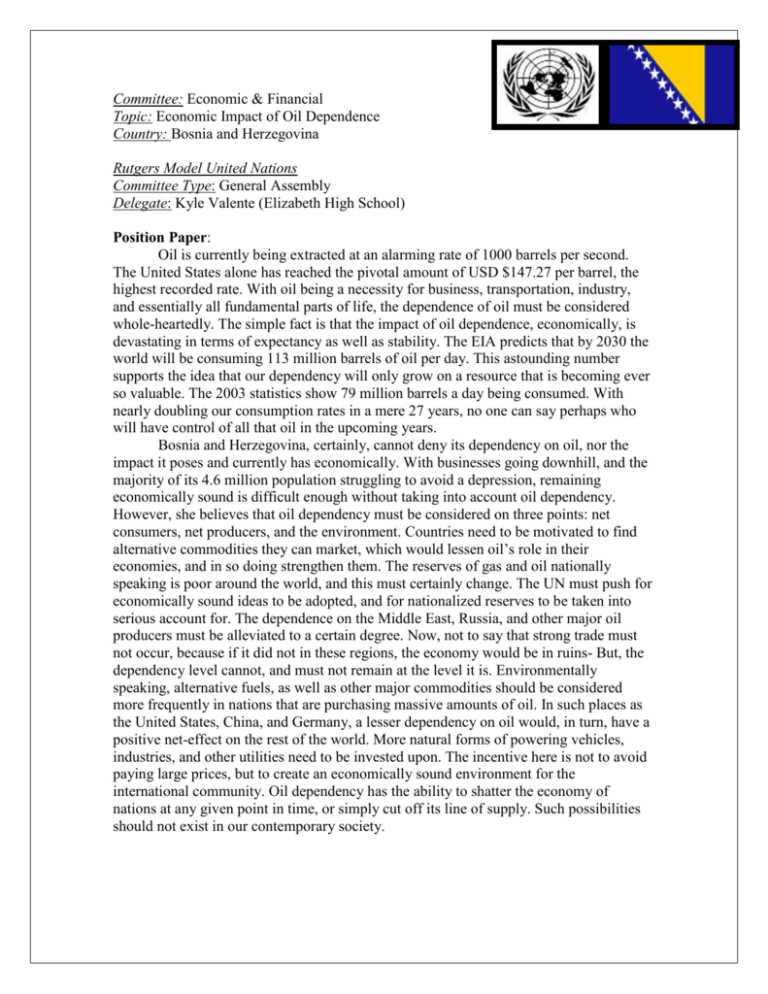
Committee: Economic & Financial Topic: Economic Impact of Oil Dependence Country: Bosnia and Herzegovina Rutgers Model United Nations Committee Type: General Assembly Delegate: Kyle Valente (Elizabeth High School) Position Paper: Oil is currently being extracted at an alarming rate of 1000 barrels per second. The United States alone has reached the pivotal amount of USD $147.27 per barrel, the highest recorded rate. With oil being a necessity for business, transportation, industry, and essentially all fundamental parts of life, the dependence of oil must be considered whole-heartedly. The simple fact is that the impact of oil dependence, economically, is devastating in terms of expectancy as well as stability. The EIA predicts that by 2030 the world will be consuming 113 million barrels of oil per day. This astounding number supports the idea that our dependency will only grow on a resource that is becoming ever so valuable. The 2003 statistics show 79 million barrels a day being consumed. With nearly doubling our consumption rates in a mere 27 years, no one can say perhaps who will have control of all that oil in the upcoming years. Bosnia and Herzegovina, certainly, cannot deny its dependency on oil, nor the impact it poses and currently has economically. With businesses going downhill, and the majority of its 4.6 million population struggling to avoid a depression, remaining economically sound is difficult enough without taking into account oil dependency. However, she believes that oil dependency must be considered on three points: net consumers, net producers, and the environment. Countries need to be motivated to find alternative commodities they can market, which would lessen oil’s role in their economies, and in so doing strengthen them. The reserves of gas and oil nationally speaking is poor around the world, and this must certainly change. The UN must push for economically sound ideas to be adopted, and for nationalized reserves to be taken into serious account for. The dependence on the Middle East, Russia, and other major oil producers must be alleviated to a certain degree. Now, not to say that strong trade must not occur, because if it did not in these regions, the economy would be in ruins- But, the dependency level cannot, and must not remain at the level it is. Environmentally speaking, alternative fuels, as well as other major commodities should be considered more frequently in nations that are purchasing massive amounts of oil. In such places as the United States, China, and Germany, a lesser dependency on oil would, in turn, have a positive net-effect on the rest of the world. More natural forms of powering vehicles, industries, and other utilities need to be invested upon. The incentive here is not to avoid paying large prices, but to create an economically sound environment for the international community. Oil dependency has the ability to shatter the economy of nations at any given point in time, or simply cut off its line of supply. Such possibilities should not exist in our contemporary society.

